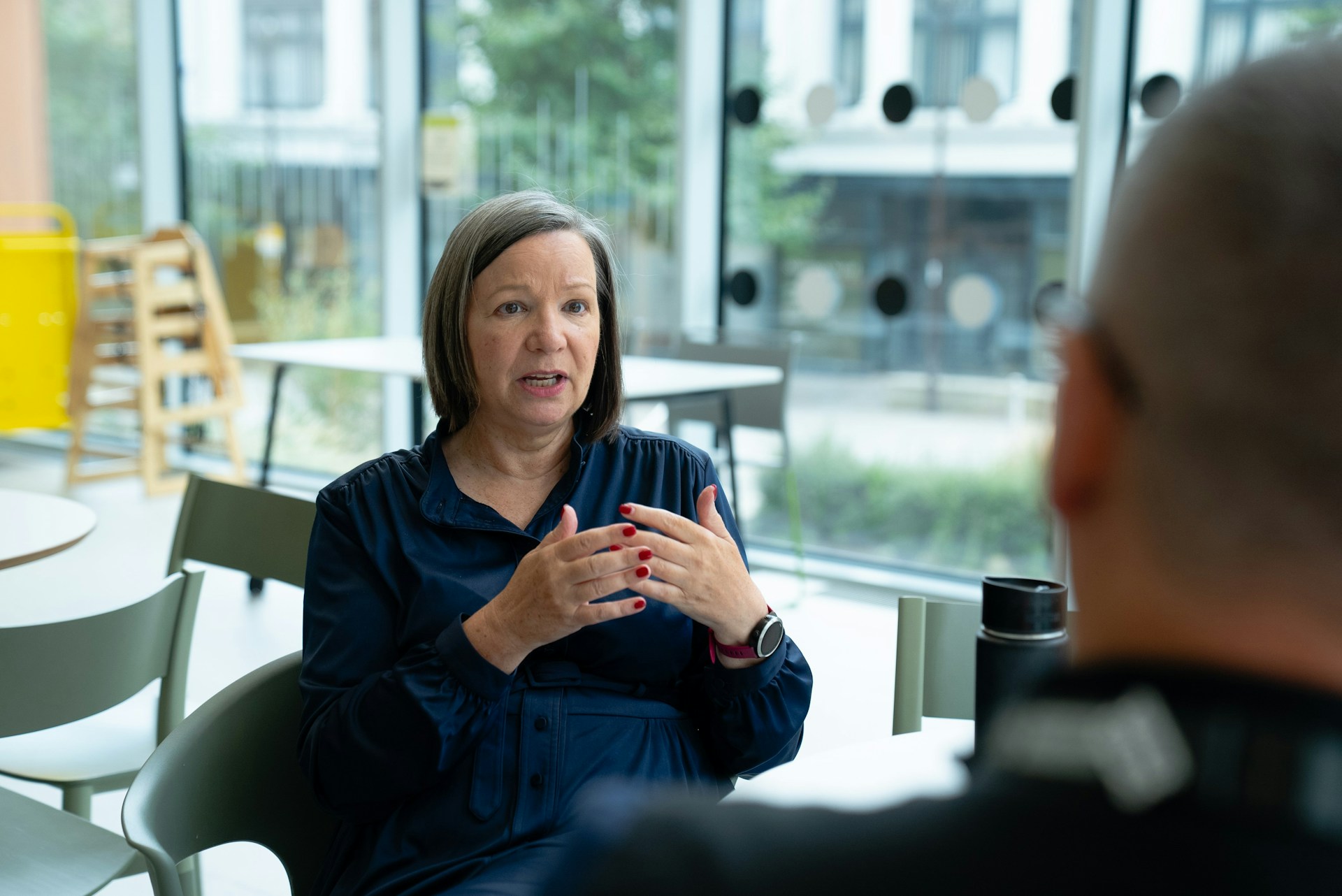How Solo Founders Are Redefining Startup Success

When Pieter Levels launched Nomad List from his laptop in a small Amsterdam apartment, he didn’t have a team, investors, or even a fixed plan. What he had was an idea: a simple website that helped digital nomads find the best cities to live and work remotely. Ten years later, Levels runs a profitable portfolio of one-person businesses, including Remote OK, which generates over $1 million in annual revenue, all without hiring a single full-time employee.
Levels is part of a new generation of founders proving that you don’t need a 50-person team or venture capital to build something meaningful. These are the micro-startups; lean, often solo-run ventures powered by automation, no-code tools, and AI. They’re reshaping what it means to “scale” a company in the modern economy.
The Solo Founder Era
In the past, launching a startup meant raising funds, hiring a team, and chasing hypergrowth. Today, a laptop and Wi-Fi are often enough. Platforms like Substack, Gumroad, and Patreon have made it possible for individuals to earn a living from digital products, writing, or niche expertise. According to Stripe, creators using its platform earned more than $25 billion collectively in 2023, a 50% increase from 2021.
This boom is part of a larger shift. The barriers to building have collapsed. No-code tools like Webflow, Bubble, and Zapier allow founders to build apps, automate workflows, and launch in days rather than months. Add in generative AI tools like ChatGPT, Midjourney, and Notion AI, and solo founders suddenly have access to what feels like a digital team of engineers, designers, and marketers.
The result: a world where one person can do what once required an entire startup staff.
The New Definition of Scale
But if you’re just one person, how do you define success? For many micro-founders, the goal isn’t to become the next Uber. It’s to build a sustainable, profitable, and independent business. Arvid Kahl, who co-founded and later sold Feedback Panda - a SaaS tool for online teachers, built his company to $55,000 in monthly recurring revenue before selling it, with just two people managing everything.
In his book Zero to Sold, Kahl argues that “scaling doesn’t have to mean hiring”, it can mean automating, delegating to software, and focusing on a narrow niche that’s too small for big companies to chase.
This mindset represents a quiet rebellion against the “grow fast or die” ethos of Silicon Valley. For many in this movement, freedom is the new currency.
The Creator Economy and the Rise of the Micro-Brand
Parallel to this, the creator economy has turned individuals into brands. Writers, designers, developers, and consultants now monetize directly through audiences rather than institutions. Substack newsletters, YouTube channels, and TikTok communities have become viable businesses, sometimes earning more than traditional startups.
Take Ali Abdaal, a former doctor turned YouTuber, who built a multimillion-dollar business around productivity content and digital courses. Or Sahil Bloom, whose newsletter and Twitter presence evolved into investment and education ventures. These are modern “micro-founders”, not building code-based products, but content-based companies.
According to Linktree’s 2024 Creator Report, more than 200 million people now identify as creators globally. Of those, 12% earn their primary income from their work online, a figure expected to double by 2027. The creator economy isn’t fringe anymore; it’s a mainstream micro-startup ecosystem.
Technology as the Great Equalizer
What makes all this possible is the convergence of automation, AI, and distribution. Five years ago, you might have needed a developer, marketer, and data analyst to run a SaaS app. Today, a single founder can use ChatGPT for marketing copy, Airtable for databases, and Zapier for backend automation, all without writing a line of code.
The rise of AI copilots and assistants means even complex tasks like customer service, analytics, or UX design can be partially automated. This shift is so significant that McKinsey estimates generative AI could add up to $4.4 trillion in annual productivity gains globally. For micro-founders, that means an unprecedented ability to do more with less.
But the tools alone aren’t the full story. What’s really changed is the mindset. Founders no longer measure credibility by the size of their team but by the impact of their product and the intimacy of their community.
Do Small Startups Have a Moat?
That question, defensibility, is where the debate heats up. Can a one-person startup ever build a lasting moat? Traditional investors argue that scale requires teams, capital, and infrastructure. But micro-founders are proving otherwise.
Their moat often lies in authenticity, community, and personal brand. When customers buy from someone they know and trust — a writer, designer, or indie hacker — they’re not just buying a product, they’re buying into a story. That kind of loyalty is hard to replicate at scale.
Still, the lean model isn’t risk-free. A single founder can burn out, struggle with support load, or face growth ceilings. Without redundancy or team support, sustainability becomes a real challenge. Yet many micro-founders counter that the trade-off - autonomy over exhaustion - is worth it.
From Lean to Anti-Fragile
The micro-startup wave isn’t about being small forever. It’s about building systems that scale without people. Some founders grow through automation; others through communities or partnerships. The most successful solo ventures eventually become anti-fragile, able to adapt quickly because they’re not weighed down by hierarchy.
Jason Fried and David Heinemeier Hansson of 37signals (makers of Basecamp and Hey) have long championed this philosophy. Their company runs with fewer than 100 people but competes with giants like Microsoft and Slack. As Fried wrote in Rework, “You need less than you think to start a business.” That mantra now defines a generation of founders who see efficiency not as a constraint but as a strategy.
Global Opportunity, Local Freedom
One of the most exciting effects of micro-startups is it’s independent of location. You don’t need to be in Silicon Valley to build something world-class. A solo founder in Lisbon, Dublin, or Austin can now launch to a global audience overnight.
This shift is empowering founders from smaller markets, giving them the same tools, reach, and platforms as traditional startup hubs.
For venture capital, this is both an opportunity and a challenge. The rise of bootstrapped, independent founders means fewer companies are chasing funding, and more are focused on profitable, steady growth instead of blitzscaling.
The Debate: Trend or Transformation?
So, is the rise of micro-startups a fad or the next frontier? Some skeptics argue that solo ventures can’t sustain long-term innovation, that true scale demands teams and infrastructure. But history suggests otherwise.
From early internet entrepreneurs like Matt Mullenweg (who started WordPress as a side project) to today’s AI-powered indie hackers, innovation often starts small. As automation continues to evolve, the definition of a “company” itself is changing, from an office full of employees to a network of tools, APIs, and audiences.
In many ways, the micro-startup mirrors the rise of the gig economy, but with ownership. Instead of renting out skills, founders now build assets. And unlike freelancers, they can scale infinitely through software, content, or courses.
Why It Matters for the Next Generation of Founders
For aspiring entrepreneurs, the implications are huge. You no longer need permission, or a payroll, to build something that matters. The traditional startup gatekeepers are losing their monopoly on innovation.
The path forward is clear but challenging: focus deeply on a niche, build in public, leverage automation, and nurture an authentic brand. Success won’t come from being the biggest, but from being the most distinct, consistent, and trusted.
Final Thought
The micro-startup era isn’t just about smaller teams, it’s about a new philosophy of work. One that values independence over hierarchy, sustainability over speed, and creativity over capital.
In a world where anyone can build from anywhere, you don’t need a team to make an impact, just the courage to start, the discipline to sustain, and the wisdom to stay small by design.
Read - Switching Costs: How to Design a Business That’s Agile, Not Anchored

square.jpg)










